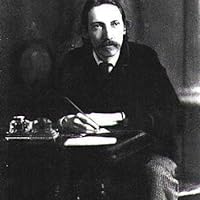Frailty Quotes
Quotes tagged as "frailty"
Showing 1-30 of 44

“We all are men, in our own natures frail, and capable of our flesh; few are angels.”
― Henry VIII
― Henry VIII

“When rain and tears are making a trip together, emotions can be coming under pressure. But the fluid bond between the power of nature and the frailty of the soul may also smash the weight of the burden and create a liberating mental flow opening new insights. (“Rainman”)”
―
―

“The things that I loved were very frail. Very fragile. I didn't know that. I thought they were indestructible. They weren't.”
― The Sunset Limited
― The Sunset Limited

“The breath of wind that moved them was still chilly on this day in May; the flowers gently resisted, curling up with a kind of trembling grace and turning their pale stamens towards the ground. The sun shone through them, revealing a pattern of interlacing, delicate blue veins, visible through the opaque petals; this added something alive to the flower's fragility, to it's ethereal quality, something almost human ,in the way that human can mean frailty and endurance both at the same time. The wind could ruffle these ravishing creations but it couldn't destroy them, or even crush them; they swayed there, dreamily; they seemed ready to fall but held fast to their slim strong branches-...”
―
―

“The Congresswoman was depressed by the fact that a woman of her standing could no longer count on making it to the rest room "in time" during the extensive rehabilitation that followed her shooting. Her husband, commander of a space shuttle crew, encouraged her by identifying with her limitation. Even revered astronauts, he revealed, have bodily limits and have to rely on Huggies during extended launch exercises.”
― Gabby: A Story of Courage and Hope
― Gabby: A Story of Courage and Hope

“My Lady, you certainly tell me about wonderful constancy, strength and virtue and firmness of women, so can one say the same thing about men? (...)
Response [by Lady Rectitude]: "Fair sweet friend, have you not yet heard the saying that the fool sees well enough a small cut in the face of his neighbour, but he disregards the great gaping one above his own eye? I will show you the great contradiction in what the men say about the changeability and inconstancy of women. It is true that they all generally insist that women are very frail [= fickle] by nature. And since they accuse women of frailty, one would suppose that they themselves take care to maintain a reputation for constancy, or at the very least, that the women are indeed less so than they are themselves. And yet, it is obvious that they demand of women greater constancy than they themselves have, for they who claim to be of this strong and noble condition cannot refrain from a whole number of very great defects and sins, and not out of ignorance, either, but out of pure malice, knowing well how badly they are misbehaving. But all this they excuse in themselves and say that it is in the nature of man to sin, yet if it so happens that any women stray into any misdeed (of which they themselves are the cause by their great power and longhandedness), then it's suddenly all frailty and inconstancy, they claim. But it seems to me that since they do call women frail, they should not support that frailty, and not ascribe to them as a great crime what in themselves they merely consider a little defect.”
― The Book of the City of Ladies
Response [by Lady Rectitude]: "Fair sweet friend, have you not yet heard the saying that the fool sees well enough a small cut in the face of his neighbour, but he disregards the great gaping one above his own eye? I will show you the great contradiction in what the men say about the changeability and inconstancy of women. It is true that they all generally insist that women are very frail [= fickle] by nature. And since they accuse women of frailty, one would suppose that they themselves take care to maintain a reputation for constancy, or at the very least, that the women are indeed less so than they are themselves. And yet, it is obvious that they demand of women greater constancy than they themselves have, for they who claim to be of this strong and noble condition cannot refrain from a whole number of very great defects and sins, and not out of ignorance, either, but out of pure malice, knowing well how badly they are misbehaving. But all this they excuse in themselves and say that it is in the nature of man to sin, yet if it so happens that any women stray into any misdeed (of which they themselves are the cause by their great power and longhandedness), then it's suddenly all frailty and inconstancy, they claim. But it seems to me that since they do call women frail, they should not support that frailty, and not ascribe to them as a great crime what in themselves they merely consider a little defect.”
― The Book of the City of Ladies
“as Schulz himself has pointed out, Snoopy is capable of being 'one of the meanest' members of the entire Peanuts cast ... he is lazy, he is a 'chow-hound' without parallel, he is bitingly sarcastic, he is frequently a coward, and he often becomes quite weary of being what he is basically -- a dog. He is, in other words, a fairly drawn caricature for what is probably the typical Christian.”
― The Gospel According to Peanuts
― The Gospel According to Peanuts
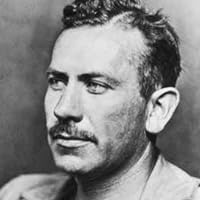
“In uncertainty I am certain that underneath their topmost layers of frailty men want to be good and want to be loved. Indeed, most of their vices are attempted shortcuts to love.”
―
―

“They are so frail humans. So easily crumpled and broken, like flower petals under foot.”
― The Goblin Market
― The Goblin Market

“We are little flames poorly sheltered by frail walls against the storm of dissolution and madness, in which we flicker and sometimes almost go out.”
― All Quiet on the Western Front
― All Quiet on the Western Front
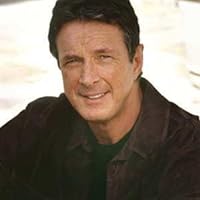
“And I think the answer is that we are, in reality, terribly frail animals. And we don't like to be reminded of how frail we are—how delicate the balances are inside our own bodies, how short our stay on Earth, and how easily it is ended.”
― Sphere
― Sphere

“If I told you the few things keeping me alive,
Don’t run, don’t laugh, don’t cry.
Just forgive me for being soft in life,
I am one of those things that die”
― The Goodbye Song
Don’t run, don’t laugh, don’t cry.
Just forgive me for being soft in life,
I am one of those things that die”
― The Goodbye Song
“Embracing human frailty, fallibility, and heartbreaking aloneness is crucial for any person seeking to attain self-actualization and self-realization.”
― Dead Toad Scrolls
― Dead Toad Scrolls

“You see, my son,” continues Kolbe softly, “the saints are not so different than you or me. Their stories reveal them to be very much human. However, this frailty does not weaken their witness or holiness, but rather extends to us the invitation to the same life amid our own frailty.”
― The Sinner Saint: A Novella of St. Patrick of Ireland
― The Sinner Saint: A Novella of St. Patrick of Ireland

“You can never be a first class human being, until you have learnt to have some regard for human frailty.”
― Conscience over Nonsense
― Conscience over Nonsense
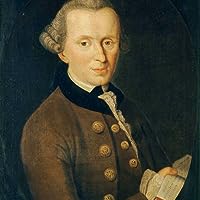
“...[A]ll the elements which belong to the notion of happiness are altogether empirical, that is, they must be borrowed from experience, and nevertheless the idea of happiness requires an absolute whole, a maximum of welfare in my present and all future circumstances. Now it is impossible that the most clear-sighted and at the same time most powerful being (supposed finite) should frame to himself a definite conception of what he really wills in this. Does he will riches, how much anxiety, envy, and snares might he not thereby draw upon his shoulders? Does he will knowledge and discernment, perhaps it might prove to be only an eye so much the sharper to show him so much the more fearfully the evils that are now concealed from him and that cannot be avoided, or to impose more wants on his desires, which already give him concern enough. Would he have long life? Who guarantees to him that it would not be a long misery? Would he at least have health? How often has uneasiness of the body restrained from excesses into which perfect health would have allowed one to fall, and so on? In short, he is unable, on any principle, to determine with certainty what would make him truly happy; because to do so he would need to be omniscient.”
― Fundamental Principles of the Metaphysic of Morals
― Fundamental Principles of the Metaphysic of Morals

“In real life I fell easily under the spell of all traveling artists. En route to New Orleans, entertainments of many kinds would stop over in those days for a single performance in Jackson's Century Theatre. Then, as now, my imagination was magnetized toward transient artists - toward the transience as much as the artists. I must have seen "Acrobats in a Park" at the time I wrote the story as exotic, free of any experience as I knew it. At the center of the little story is the Zorro's act: the feat of erecting a structure of their bodies that holds together, interlocked, and stands like a wall. Writing about the family act, I was writing about the family itself, its strength as a unit, testing its frailty under stress. I treated it in an artificial and oddly formal way; the stronghold of the family is put on view as a structure built each night; on the night before the story opens, the Wall has come down when the most vulnerable member slips, and the act is done for. But from various points within it and from outside it, I've been writing about the structure of the family in stories and novels ever since. In spite of my uncompromising approach to it, my fundamental story form might have been trying to announce itself to me.”
― On Writing
― On Writing

“[Jean-Christophe’s father] was not a bad man, but a half-good man, which is perhaps worse—weak, without spring, without moral strength, but for the rest, in his own opinion, a good father, a good son, a good husband, a good man—and perhaps he was good, if to be so it is enough to possess an easy kindness, which is quickly touched, and that animal affection by which a man loves his kin as a part of himself. It cannot even be said that he was very egoistic; he had not personality enough for that. He was nothing. They are a terrible thing in life, these people who are nothing. Like a dead weight thrown into the air, they fall, and must fall; and in their fall they drag with them everything that they have.”
― Jean Christophe
― Jean Christophe
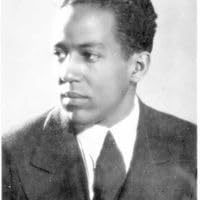
“Mortal frailty, greed, and error, know no boundary lines. The explosives of war do not care whose hands fashion them. Certainly, both Marxists and Christians can be cruel. Would that Christ came back to save us all. We do not know how to save ourselves.”
― Good Morning, Revolution: Uncollected Social Protest Writings
― Good Morning, Revolution: Uncollected Social Protest Writings

“Oh, what the ocean did to a man. How unmatched it was. One could competitively build a giant castle made of sand or even hire architects to construct a true castle by the shore made of rocks and furnish its enormous insides with crystals. Yet plop him closer to the sea and within seconds, he will yield and feel as dumb as any other measly man lost at land.”
― A Happy Ghost
― A Happy Ghost
“The nightmare they banished – a thing of darkness and misery, born of their fears, bloated on their hatreds. They did not – could not – understand it's true essence: the mark of a divinity, broken and scattered among them. Much like the souls of men.”
― Where The Gods Lie Dreaming
― Where The Gods Lie Dreaming
“In a world infatuated with victimhood, has trauma emerged as a passport to status - our red badge of courage?”
―
―
All Quotes
|
My Quotes
|
Add A Quote
Browse By Tag
- Love Quotes 97k
- Life Quotes 75.5k
- Inspirational Quotes 72.5k
- Humor Quotes 43.5k
- Philosophy Quotes 29.5k
- Inspirational Quotes Quotes 27k
- God Quotes 26k
- Truth Quotes 23.5k
- Wisdom Quotes 23.5k
- Romance Quotes 23k
- Poetry Quotes 22k
- Death Quotes 20k
- Happiness Quotes 18.5k
- Life Lessons Quotes 18.5k
- Hope Quotes 18k
- Faith Quotes 18k
- Quotes Quotes 16.5k
- Inspiration Quotes 16.5k
- Spirituality Quotes 15k
- Religion Quotes 15k
- Motivational Quotes 15k
- Writing Quotes 14.5k
- Relationships Quotes 14.5k
- Life Quotes Quotes 14k
- Love Quotes Quotes 13.5k
- Success Quotes 13.5k
- Time Quotes 12.5k
- Motivation Quotes 12k
- Science Quotes 11.5k
- Knowledge Quotes 11k




